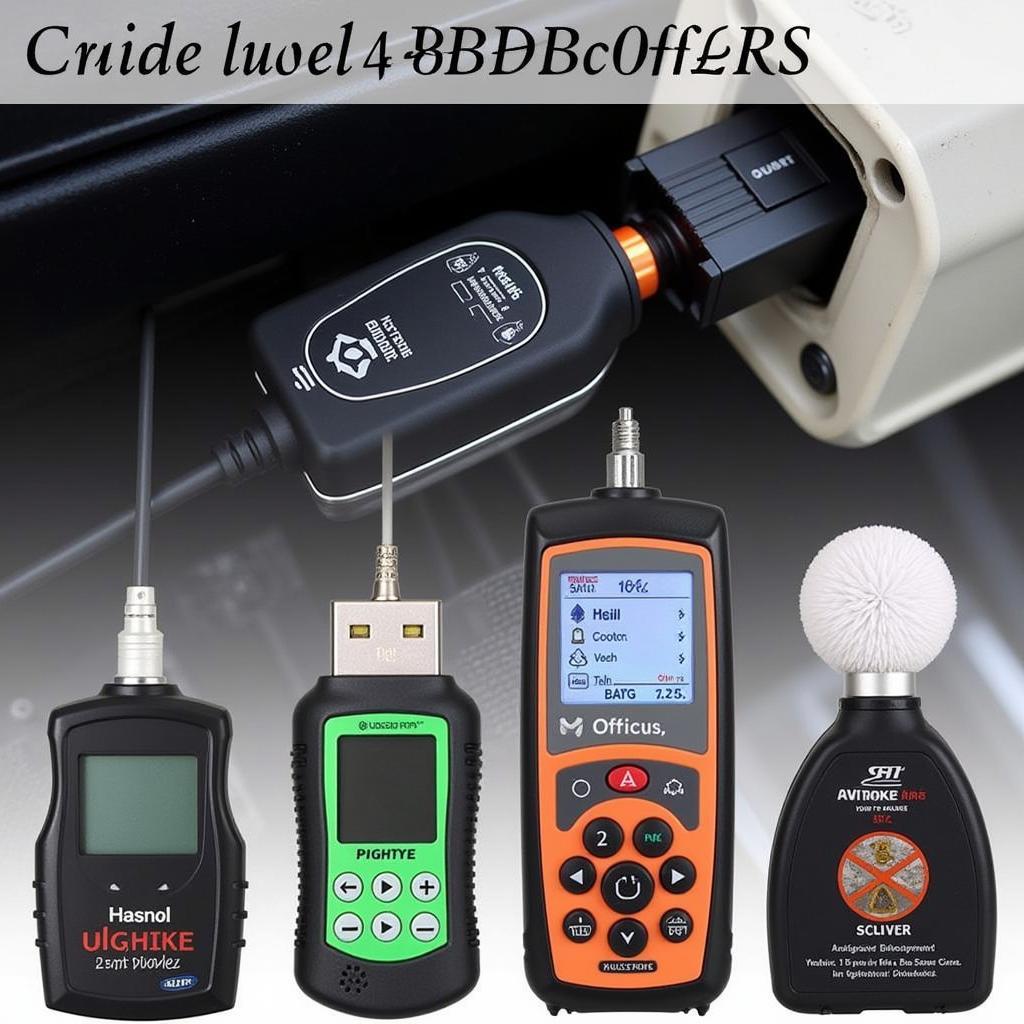Finding the right car diagnostic computer can feel like navigating a maze. With so many options available, it’s easy to feel overwhelmed. Whether you’re a seasoned mechanic or a car enthusiast looking to DIY, this guide will equip you with the knowledge to make an informed decision when browsing Car Diagnostic Computers For Sale.
Why Invest in a Car Diagnostic Computer?
Before we dive into the specifics, let’s address the “why.” Investing in a car diagnostic computer can save you time, money, and frustration in the long run. Here’s how:
- Accurate Diagnosis: Pinpoint car problems with precision, avoiding unnecessary guesswork and costly repairs.
- DIY Repairs: Tackle minor issues yourself and avoid hefty mechanic fees.
- Enhanced Understanding: Gain deeper insights into your vehicle’s health and performance.
- Negotiating Power: Approach mechanics with confidence, armed with knowledge of potential problems.
Types of Car Diagnostic Computers
The market offers a range of car diagnostic computers, each with unique features and capabilities.
1. OBD2 Scanners
OBD2 scanners are entry-level devices that connect to your car’s OBD2 port, typically located under the dashboard. They are ideal for reading and clearing basic diagnostic trouble codes (DTCs), offering a glimpse into your car’s engine health.
 Types of OBD2 Scanners
Types of OBD2 Scanners
2. Professional-Grade Scan Tools
For more advanced diagnostics and in-depth analysis, professional-grade scan tools are the go-to choice. These tools provide access to a wider range of vehicle systems beyond the engine, including:
- Transmission
- ABS
- Airbags
- Climate Control
3. PC-Based Diagnostic Software
PC-based diagnostic software offers the most comprehensive diagnostic capabilities. These software suites connect to your computer via USB or Bluetooth, providing access to a vast database of information and advanced diagnostic features.
Key Features to Consider
When comparing car diagnostic computers for sale, keep these essential features in mind:
- Vehicle Compatibility: Ensure the scanner supports your car’s make, model, and year.
- Code Reading and Clearing: Verify the scanner can read and clear both generic and manufacturer-specific DTCs.
- Live Data Streaming: Real-time data display helps diagnose intermittent problems and monitor sensor performance.
- Bi-Directional Control: This feature allows you to interact with and test various vehicle systems.
- Software Updates: Regular updates ensure compatibility with the latest vehicle models and diagnostic protocols.
Choosing the Right Tool for You
The ideal car diagnostic computer depends on your individual needs and budget.
- For casual users looking to perform basic diagnostics, an OBD2 scanner is a cost-effective option.
- Professional mechanics and experienced DIYers benefit from the advanced features of professional-grade scan tools.
- PC-based software suits those seeking the most comprehensive diagnostic capabilities.
Conclusion
Investing in the right car diagnostic computer can empower you to take control of your vehicle’s maintenance and repair. By understanding your needs and considering the key features, you can navigate the market with confidence and find the perfect tool for your needs. Remember, a well-chosen diagnostic tool is an investment that pays dividends in saved time, money, and peace of mind.
FAQs
1. Are car diagnostic computers universal?
No, not all car diagnostic computers are universal. While most support the standard OBD2 protocol, certain makes and models require specialized software or adapters.
2. Can I use a car diagnostic computer on multiple vehicles?
Yes, many diagnostic computers are compatible with a wide range of vehicles. However, it’s essential to check the manufacturer’s specifications to ensure compatibility.
3. How often do car diagnostic computers need updates?
The frequency of software updates varies depending on the manufacturer and model. It’s crucial to install updates regularly to ensure optimal performance and compatibility with newer vehicle models.
4. Are there any risks associated with using a car diagnostic computer?
While generally safe to use, it’s crucial to avoid altering any settings or commands you don’t fully understand, as this could potentially impact your vehicle’s performance.
5. What should I look for when buying a used car diagnostic computer?
When buying used, ensure the device is in good working condition, comes with all necessary cables and adapters, and is compatible with your vehicle.
For more information on running a diagnostic on your car, check out our comprehensive guide running a diagnostic on a car. Interested in exploring the best diagnostic computers? Visit our page on the top options available for you: buy diagnostic computer for cars.

Leave a Reply